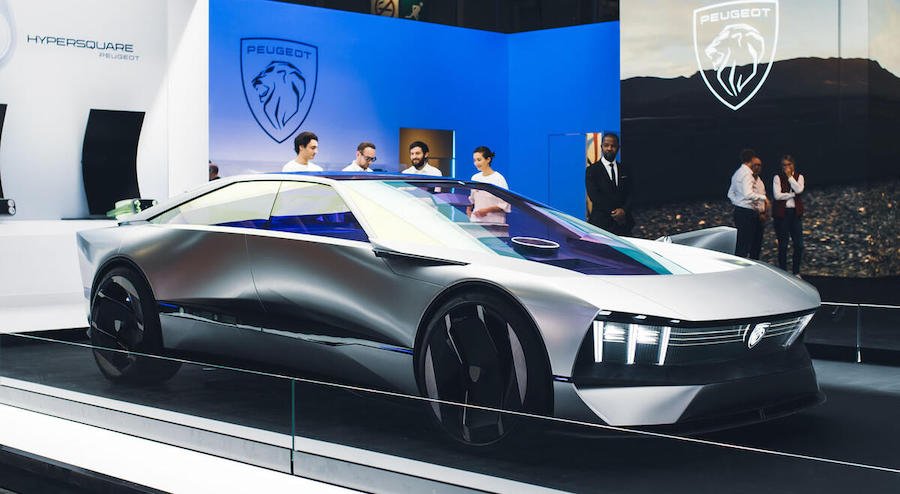Peugeot embraces futuristic design as rivals go retro

Peugeot won’t follow rivals in reviving any historic models for its all-electric era, but will subtly reference its heritage in future cars.
The brand’s head of design, Matthias Hossann, told Autocar that Peugeot has no plans to adopt a nostalgia-fuelled design approach at the Paris motor show, where Renault showed off the new retro-styled 4 crossover alongside its similarly conceived 5 and Twingo EVs.
His comments would seem to confirm, once and for all, that there is no chance of 2018’s E-Legend concept reaching production in any form - and that its influence on future models will be minimal.
Designed to celebrate the 50th anniversary of Peugeot's brand-defining 504 saloon, the E-Legend was an overtly retro-inspired creation that introduced several definitive styling cues for Peugeot's current model line-up, but it never made it to showrooms in its own right.
While they take some influence from the concept in their light signatures and muscular proportions, Peugeot's current cars are rather more futuristic in their design than retro, but that's not to say heritage cannot still play a role in the brand's future, according to Hossann.
He said he is "still super-proud" of the E-Legend, because "it was the perfect balance between reinventing the past without going into pure retro design.
"I think sometimes it's good to do retro design when you have to relaunch a brand, because it creates a kind of highlight for the brand at some point. I think that is not really the case, for the moment, at Peugeot.”
So while rival brands including Renault, Fiat and Mini take influence from their most recognisable past models for their new-era EVs, there are no grand comebacks for any historic Peugeot models in the cards.
Instead, as showcased by the brand’s radical Inception concept – expected to strongly influence the successor to the 508 – Peugeot’s future models will be imposing, futuristically styled creations designed to make the marque as recognisable and distinctive as possible, while taking influence from its 214-year history.
Hossann said: "What we are showing today, for example, with the Inception is that Peugeot is one of the oldest car brands in the world, in fact, but at the same time, we are really future- and forward-looking.
“When we design a Peugeot as a team, we say 'let's really invent the future', but at the same time, we have some solid foundations. We have a fantastic history.
"So I'm not saying that we'll never look into our history – and the E-Legend is a perfect example – but at the same time, how can we twist it into something which, in the end, is really futuristic, you know? I think this is the main challenge.”
Hossann said exclusively nostalgic design cues can be "a danger for a brand" and that it is important for Peugeot to show it "can always reinvent" itself.
"The challengers for the future will be those brands that maybe do not exist today, so can we really reinvent, on a daily basis, our brand, by keeping this strong foundation which is our story?
"It's always a nice balance between playing with history but always looking into the future," he said.
Designing cars according to these principles is crucial to cementing and promoting Peugeot's identity as it faces off with a wave of newcomer brands who don't have the same heritage and recognisability to lean on.
"We have tried, for some years, to make a Peugeot be recognisable from 200 metres away", said Hossann, who points to the 'feline attitude' of Peugeot's current design language as a key differentiator from its rivals.
Related News


